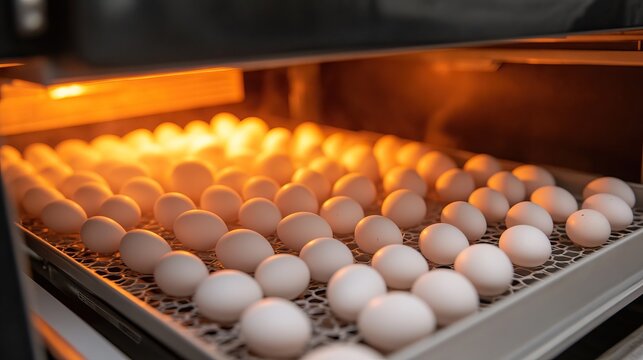Understanding the egg incubation timeline is crucial for anyone interested in raising chickens. Whether you are a beginner or have some experience, knowing the different stages of incubation can greatly enhance your success in hatching healthy chicks. In this article, we will explore the various phases of egg incubation, what factors influence the process, and how to ensure the best possible outcome for your eggs.
For those new to this fascinating process, the egg incubation timeline typically spans 21 days for chicken eggs. However, this duration can vary slightly depending on several factors, which we will discuss in detail. By understanding these stages and the requirements for successful incubation, you can increase your chances of successfully hatching chicks.

The Basics of Egg Incubation
Before diving into the details of the egg incubation timeline, it’s essential to grasp the basics. Incubation is the process of maintaining fertilized eggs under controlled conditions to allow the embryo to develop into a chick. This process can be done naturally by a broody hen or artificially using an incubator.
Natural vs. Artificial Incubation
Natural incubation occurs when a hen sits on her eggs to provide the necessary warmth and humidity. On the other hand, artificial incubation involves using an incubator to mimic the conditions provided by the hen. You can learn more about the differences in our Beginner’s Guide to Egg Incubation.
The 21-Day Incubation Process
The standard egg incubation timeline for chicken eggs is 21 days, divided into three key phases: the setting phase, the incubation phase, and the hatching phase.
Setting Phase (Days 1-7)
The setting phase is the beginning of the incubation process. During this time, it’s crucial to maintain the right temperature and humidity levels. The ideal temperature for chicken eggs is around 99.5F (37.5C), and the humidity should be approximately 50-55%. For more information on maintaining the correct conditions, check out our guide on humidity in incubators.
Incubation Phase (Days 8-18)
In this phase, the embryos continue to develop, and you may want to candle the eggs to check on their progress. Candling involves shining a light through the egg to observe the embryo’s development. For tips on how often to perform this task, visit our article on candling eggs.
Hatching Phase (Days 19-21)
The final phase of the egg incubation timeline is the hatching phase. It’s crucial to increase the humidity to around 65-70% to facilitate the hatching process. During this phase, the eggs should not be turned, as the chicks are positioning themselves to break out of their shells. For post-hatching care, refer to our chick care guide.
Factors Influencing the Incubation Timeline
Several factors can influence the egg incubation timeline, including temperature fluctuations, humidity levels, and egg quality. It’s vital to monitor these elements closely to ensure a successful hatch.
Temperature Control
Maintaining a consistent temperature is crucial for the development of embryos. Variations in temperature can lead to delayed hatching or even embryo death. For more detailed information on temperature control, consider reading this external guide on egg incubation.
Humidity Levels
Proper humidity is essential to prevent the eggs from losing too much moisture, which can affect the chick’s ability to hatch. It’s important to regularly check and adjust the humidity in your incubator.
Egg Quality
The quality of the eggs themselves also plays a significant role. Fertilized eggs should be fresh and free of cracks or deformities. For advice on storing eggs before incubation, see our guide on egg storage.
Common Challenges and Solutions
While incubating eggs can be rewarding, it also comes with its challenges. Some common issues include temperature fluctuations, humidity problems, and poor egg quality. Understanding these challenges and how to address them is vital for successful incubation.
Dealing with Temperature Fluctuations
To minimize the impact of temperature fluctuations, ensure your incubator is placed in a stable environment away from drafts or direct sunlight. Regularly calibrate your incubator’s thermostat to maintain the correct temperature.
Managing Humidity Issues
If you’re having trouble maintaining the correct humidity, consider using a hygrometer to monitor levels accurately. Adjust the water levels in the incubator’s water channels as needed.
Conclusion
Understanding the egg incubation timeline and the factors that influence it is essential for anyone looking to successfully hatch chicken eggs. By maintaining the right conditions and addressing common challenges, you can improve your chances of seeing healthy chicks emerge. If you’re interested in more detailed information or specific tips, our external resource on hatching chicks offers additional insights.

FAQ Section
What is the ideal temperature for incubating chicken eggs?
The ideal temperature for incubating chicken eggs is around 99.5F (37.5C).
How long does it take for chicken eggs to hatch?
Chicken eggs typically take 21 days to hatch, although this can vary slightly due to various factors.
Can I use a regular light to candle eggs?
Yes, you can use a bright flashlight or a specialized egg candler to check the development of embryos within the eggs.
This article contains affiliate links. We may earn a commission at no extra cost to you.











